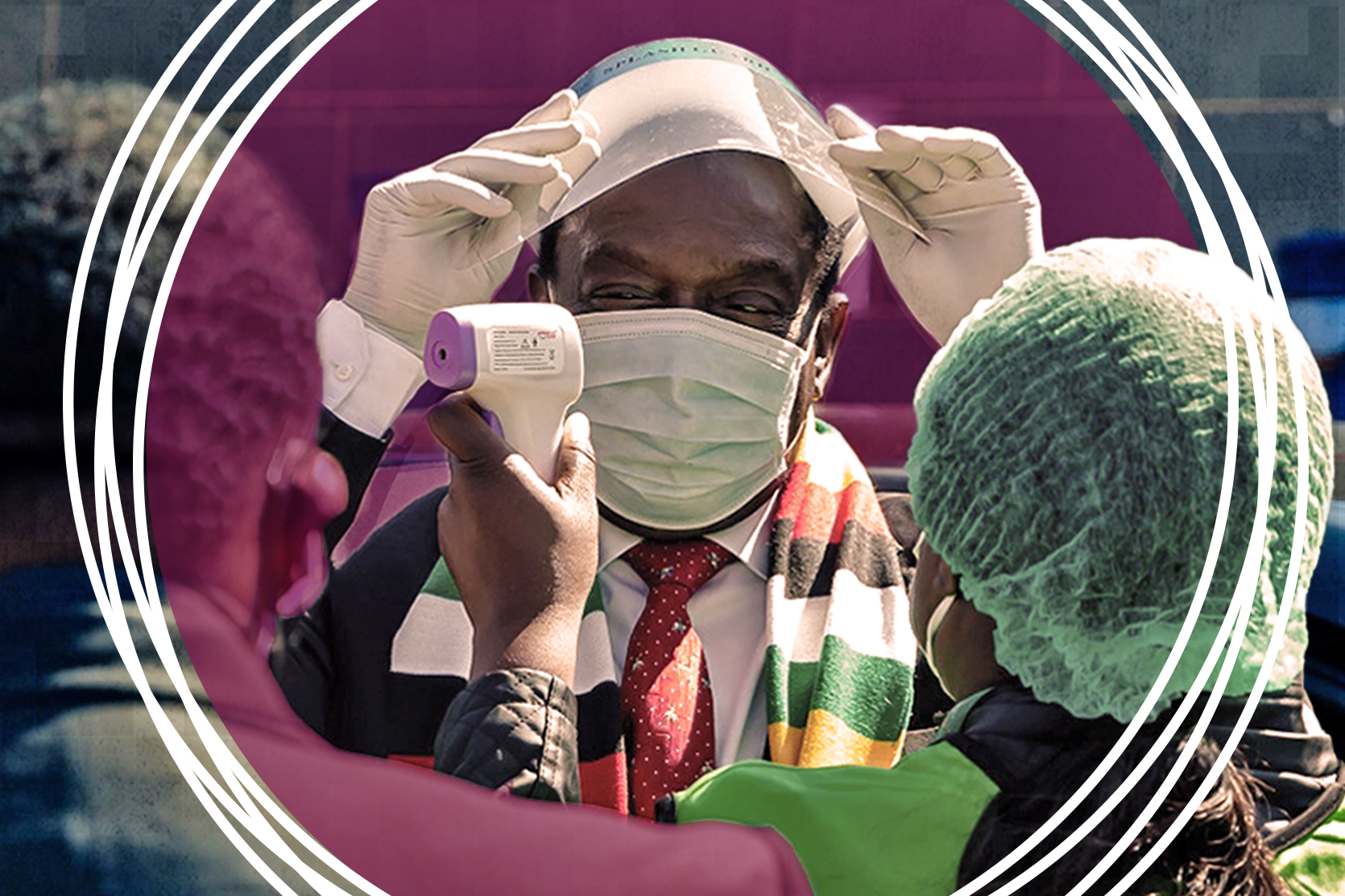
Public reaction to President Emmerson Mnangagwa’s tweet announcing the death of Lands and Agriculture minister Perrance Shiri on July 29 summarised the polarised nature of the Zimbabwean society, while also serving as a barometer of the effectiveness of government policies in the fight against the Covid-19 pandemic.
Although Mnangagwa did not immediately reveal the cause of death, word had already gone around that Shiri – a powerful former head of the air force and the former commander of the infamous 5th Brigade which is estimated to have killed about 20,000 civilians in the Gukurahundi massacre in the Matabeleland and Midlands regions in the early 1980s – had succumbed to the Covid-19 pandemic.
On July 31, Mnangagwa confirmed Shiri had indeed died of Covid-19, after bizarrely visiting his family brandishing test results. Meanwhile, some family members questioned the claim, and told the media that they suspected that Shiri had been poisoned. Shiri’s death shook the corridors of power and resulted in several ministers and high-ranking government officials going into self-isolation after coming into contact with him.
Shiri – a powerful former head of the air force and the former commander of the infamous 5th Brigade which is estimated to have killed about 20,000 civilians in the Gukurahundi massacre in the Matabeleland and Midlands regions in the early 1980s – succumbed to the Covid-19 pandemic.
While the president praised the departed minister, Zimbabweans responded by criticising government corruption and reported looting Covid-19 funds and demanding working hospitals. A response from @libyPatendero read: “Build hospitals (rather) than promoting corruption through Command Agriculture. Covid-19 is the greatest equaliser.”
Command Agriculture is a support scheme for farmers introduced by government and was overseen by then vice president, Mnangagwa, who chaired the Cabinet Committee on Food and Nutrition. It was introduced at the beginning of the 2016-17 farming season to ensure food security. Joseph Made was the agriculture minister at the time.
Under the controversial programme implemented through Sakunda Holdings owned by Mnangagwa’s advisor Kuda Tagwirei, beneficiary farmers, among them ministers and senior government officials, army commanders and judges received farming inputs and implements. In 2018, Sakunda Holdings failed to properly account for close to $3 billion, according to Auditor-General Mildred Chiri’s audit report for that year, subsequently corroborated by Lands and Agriculture ministry senior officials in parliament.
Shiri’s death shook the corridors of power and resulted in several ministers and high-ranking government officials going into self-isolation after coming into contact with him.
Responding to the president’s tweet, other Zimbabweans openly celebrated the minister’s death, citing the role he played in the Gukurahundi massacres; Shiri has been as “one of the key architects of the Gukurahundi mass executions in the early 1980s”. Other respondents said Shiri was a typical example of the country’s powerful political and military elite, which had subjected Zimbabweans to all sorts of human rights violations.
The state of decay of the country’s health care system has certainly been exposed by the Covid-19 pandemic – and with it, another glaring inequality. It is common knowledge that the members of the ruling elite hardly ever use local hospitals. In an emergency they might use an expensive private hospital, but only until they can fly out to a better-equipped foreign hospital.
When former President Robert Mugabe died on 6 September last year, he was in Singapore, where he had been treated periodically for over a decade. Mnangagwa was treated in South Africa after a poisoning scare in 2017, while Vice President Constantino Chiwenga is a frequent visitor to China, where he has been receiving treatment since last year. Chiwenga has also been treated in South Africa and India.
While the president praised the departed minister, Zimbabweans responded by criticising government corruption and reported looting Covid-19 funds and demanding working hospitals.
Other cabinet ministers and high ranking Zanu PF officials have shown a similar preference for costly overseas treatment. Co-Vice President Kembo Mohadi and Defence Minister Oppah Muchinguri were treated in South Africa after being caught in a bomb blast in 2018. Mohadi also visited South Africa several times last year for treatment. Indeed, at one time, both Zimbabawe’s vice presidents were hospitalised in the neighbouring country at the same time.
Popular opinion regarding Chiri’s death reflects the views expressed in the responses to the president’s tweet. “Covid-19 knows no elite or poor person. This pandemic is a killer, [and] it should remind the likes of Mnangagwa that they are mortal,” said Miriam Muchongwe (33) a vendor resident in Mbare, a high density suburb in Harare.
She was happy, she said, that limits on international travel meant that powerful people could not easily fly out of the country for treatment. “I may sound like a callous person, but I hope the pandemic hits those at the top hard. Zimbabweans are not stupid. They demand that the government should invest tax-payers’ money in hospitals and other social needs, instead of funding their luxurious lifestyles.”
Responding to the president’s tweet, other Zimbabweans openly celebrated the minister’s death, citing the role he played in the Gukurahundi massacres.
Zimbabweans have expressed their disappointment on various platforms – health care, industry and trade unions, among others – at the containment measures adopted by government to stop the spread of the pandemic since the first case was reported on 20 March.
Zimbabwe Association of Doctors for Human Rights secretary general Norman Matara told me that Covid-19 had brought many lessons with it. “Basically, as a country we were not prepared for Covid-19. Pandemics and natural disasters don’t give warnings, so it is important for countries to have strong systemic building blocks for health systems.”
Zimbabwe has been shown to be weak in all six system components as recommended by the World Health Organisation, Matara said: leadership and governance, service delivery, health system financing, health workforce, medical products, vaccines and technologies and health information systems.
“Covid-19 knows no elite or poor person. This pandemic is a killer, [and] it should remind the likes of Mnangagwa that they are mortal” – Miriam Muchongwe
“As a result, the positive policy steps taken by the government to contain the pandemic, such as introducing a national lockdown, equipping hospitals and isolation centres, decentralising Covid-19 treatment and so on, failed. You can’t neglect hospitals for decades and then attempt to equip them in six weeks. When the pandemic struck, Wilkins Isolation Hospital didn’t have plug points, or a single ventilator.”
Although Covid-19 treatment had been decentralised, most provincial hospitals lacked resources such as beds, ventilators and even personnel, including ICU nurses and anaesthesiologists, while some districts were unable to transfer patients due to a lack of ambulances. The same lack of resources has seen the government failing to roll out Covid-19 tests, with many Covid-19 deaths being discovered only during routine post mortems.
One vital lesson from the pandemic, Matara said, was that the Zimbabwean government should adhere to the Abuja Declaration, in which African leaders committed to allocate 15% of their annual budgets to improving the health sector.
Zimbabwe has been shown to be weak in all six system components as recommended by the World Health Organisation.
In an effort to stem the spread of the virus, government declared a 21-day total lockdown on 30 March, which was extended by two weeks before being gradually eased. Meanwhile, according to the official figures, Covid-19 cases are on the rise. As of 18 August there were some 5,378, with 141 deaths reported and 4,105 recoveries.
However, it is not clear how accurate these figures are. No comparative statistics for Zimbabwe are available. Across Africa, though, the total number of Covid-19 cases is much higher than official numbers suggest, according to the International Rescue Committee. The lack of data may be “due to a variety of factors – such as testing capacity, health infrastructure devastated by conflict, and stigma,” the organisation says.
The rapidly rising numbers raise the question of the effectiveness of the lockdown. Around the world, the primary aim of lockdowns has been to prevent health care systems from being overwhelmed by cases of Covid-19. But Zimbabwe’s severely neglected health care system broke down very soon anyway. So, as Zimbabwe Congress of Trade Union (ZCTU) secretary general Japhet Moyo told me, the lockdown was pointless.
As of 18 August there were some 5,378, with 141 deaths reported and 4,105 recoveries.
The government also failed to provide effective social safety nets for citizens. Most people in the country are dependent on the informal sector for a living, and they were forced to continue informal trading activities despite lockdown regulations. There was also a lack of any effective public transport, as well as a shortage of staple foods such as mealie-meal, with the result that there were often long queues at bus terminuses and shopping centres. Crammed minibus taxis and long queues are concentrations of people, and the very opposite of physical distancing, which increases contagion risk. So it’s likely that enforcing the pointless lockdown has increased the infection rate.
Moreover, while the government had introduced a taskforce, chaired by Mohadi, to fight the pandemic, it had erred by not including a range of stakeholders, among them labour and business, in the taskforce’s deliberations, Moyo said. “It’s very unfortunate that our government does not believe in dialogue or inclusivity. On many occasions business and labour were caught by surprise by some Covid-19 measures and announcements. Consultations could have seen us all pulling together in the national interest. Going forward, the government must learn to consult.”
On 1 May, Mnangagwa announced a ZW$18 billion ($430 million at the time) Economic Rescue and Stimulus Package, “designed to scale-up production in all sectors of the economy in response to the adverse effects of Covid-19.” The amount would see ZW$6.1 billion going to stimulate agricultural production, ZW$3 billion to cover capital and operational expenses for the manufacturing sector, a ZW$1 billion credit support facility for the mining sector, ZW$500 million to support the tourism and hospitality industry and ZW$1 billion for the procurement of Covid-19 testing kits, PPEs and the purchase of drugs.
Across Africa, the total number of Covid-19 cases is much higher than official numbers suggest, according to the International Rescue Committee.
The ZCTU had asked information on disbursements during a Tripartite Negotiating Forum meeting involving government, labour and business on 14 July, Moyo said. However, they were told that the plan “remained an intention”.
In any case former finance minister Tendai Biti has said that the plan did not set aside enough money to save Zimbabwe’s ailing industries. At least $1 billion would be needed, he told the Zimbabwe Independent in mid-June. CZI President Henry Ruzvidzo concurred, describing the stimulus as “a modest amount given the challenges faced by industry” to the Zimbabwe Independent in the same article.
As noted in previous blogs in this series, even before the Covid-19 outbreak, Zimbabwe’s economy was hamstrung by a number of problems, among them a debilitating liquidity crunch, acute fuel and foreign currency shortages, currency volatility and low capacity utilisation as well as runaway inflation. Covid-19 has worsened the plight of Zimbabwe’s ailing industries while stretching its ill-equipped medical facilities and exposing the weakness in the health sector.
Even before the Covid-19 outbreak, Zimbabwe’s economy was hamstrung by a number of problems, among them a debilitating liquidity crunch, acute fuel and foreign currency shortages, currency volatility and low capacity utilisation as well as runaway inflation.
As Zimbabwe Association of Doctors for Human Rights’ Matara noted, major crises such as the Covid-19 pandemic seldom announce themselves, allowing time to plan. As we have seen around the world, the major difference between countries that have weathered the pandemic relatively well and those that haven’t has been the presence or absence of strong, capable institutions – in leadership, health care and research, among other areas.
It was clear from the beginning that decades of under-investment in health care would leave Zimbabwe totally unprepared for the pandemic. And as it turned out, public health care facilities at all levels were completely unable to cope.
Now other major crises are looming, with climate change at the top of the list. Some of my fellow blog writers in this series have mentioned the looming impact of climate change on Africa’s environments. Africa in Fact’s recent edition on the environment (July 2020), to which I contributed, looks at this in a number of African countries.
The warnings are clear. Also for Zimbabwe. Indeed, climate change is one crisis that is actually announcing itself. Much remains unpredictable, but we know quite a lot about its causes and likely impacts. Time will tell, though, if the message of the pandemic is loud and clear to Mnangagwa and his administration.
We’d love to hear from you! Join The Wicked Conversation by leaving your comments below, or send your letter to the editor to richard@gga.org.
Owen Gagare is the assistant editor of the Zimbabwe Independent, a weekly newspaper, covering
business, politics and investigative stories. He has previously worked for NewsDay and the Chronicle.
Owen has also written for the Mail and Guardian and has a passion for investigative and in-depth
stories as well as human rights and governance issues.
He is based in Harare, Zimbabwe.


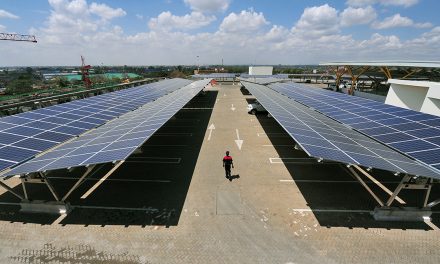
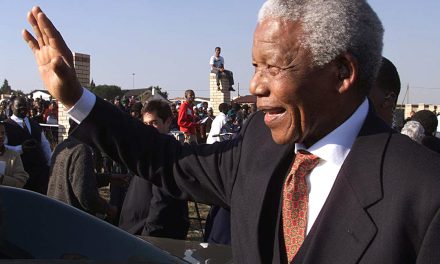
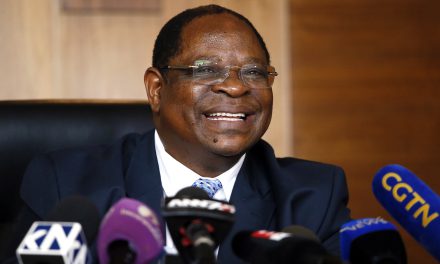
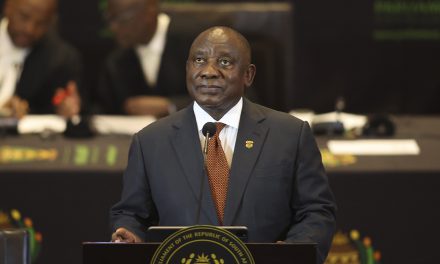


Hi, just wanted to mention, I loved this blog post. It
was practical. Keep on posting!
Good Day,
Many thanks for your response and your kind words. Kindly keep an eye on our page for more*
Actually when someone doesn’t be aware of then its up to other viewers that they will help, so here it takes place.
of course like your website but you need to take a look at the spelling on several of your
posts. A number of them are rife with spelling issues and I to find
it very troublesome to tell the truth then again I’ll
surely come again again.
Good Day,
Many thanks for your response and constructive criticism. Kindly keep an eye on our page for more*
Excellent post. I was checking continuously this weblog and I
am inspired! Extremely useful information specifically the ultimate section :
) I care for such info a lot. I was looking for
this particular info for a very long time. Thank you and good
luck.
Good Day,
Many thanks for the response and your kind words. Kindly keep an eye on our page for more*
My brother suggested I might like this web site.
He was entirely right. This publish actually made my day.
You can not consider simply how much time I had
spent for this info! Thank you!
Good Day,
Many thanks for the response and your kind words. Kindly keep an eye on our page for more*
It’s amazing to pay a visit this site and reading the views of all friends concerning this piece of writing, while I am also
keen of getting knowledge.
Good Day,
Many thanks for your response and your kind words. Kindly keep an eye on our page for more*
If you are going for finest contents like me, only go to see this website every day
as it presents feature contents, thanks
Good Day,
Many thanks for your response and your kind words. Kindly keep an eye on our page for more*
You are so awesome! I don’t suppose I’ve read a single thing like this before.
So nice to discover somebody with a few original thoughts on this issue.
Really.. thank you for starting this up. This site is something that’s needed
on the web, someone with some originality!
Good Day,
Many thanks for your response and your kind words. Kindly keep an eye on our page for more*
It’s a shame you don’t have a donate button! I’d most certainly donate
to this excellent blog! I guess for now i’ll settle for bookmarking
and adding your RSS feed to my Google account. I look forward
to fresh updates and will share this blog with my Facebook group.
Talk soon!
Good Day,
Many thanks for your response and your kind words. Kindly keep an eye on our page for more*
When someone writes an paragraph he/she maintains the idea of
a user in his/her mind that how a user can understand it.
So that’s why this post is perfect. Thanks!
Good Day,
Many thanks for your response and your kind words. Kindly keep an eye on our page for more*
Your style is very unique compared to other people I
have read stuff from. I appreciate you for posting when you have the
opportunity, Guess I’ll just bookmark this site.
Good Day,
Many thanks for your response and your kind words. Kindly keep an eye on our page for more*
After looking at a few of the articles on your blog, I honestly appreciate your technique of writing a blog.
I bookmarked it to my bookmark site list and will be checking back soon. Please visit my
website as well and tell me your opinion.
Good Day,
Many thanks for your positive and kind words. Kindly keep an eye on our page for future articles and opinion pieces*
I really like looking through a post that can make people think.
Also, many thanks for permitting me to comment!
Good Day,
Many thanks for your positive and kind words. Kindly keep an eye on our page for future articles and opinion pieces*
whoah this weblog is great i like studying your
articles. Keep up the great work! You know, lots of persons are looking round for this info, you
can help them greatly.
Good Day,
Many thanks for your positive and kind words. Kindly keep an eye on our page for future articles and opinion pieces*